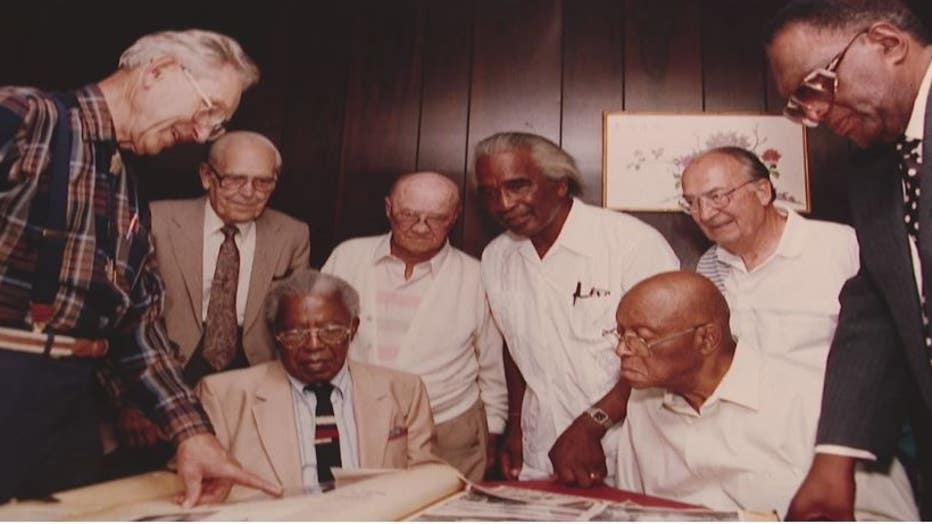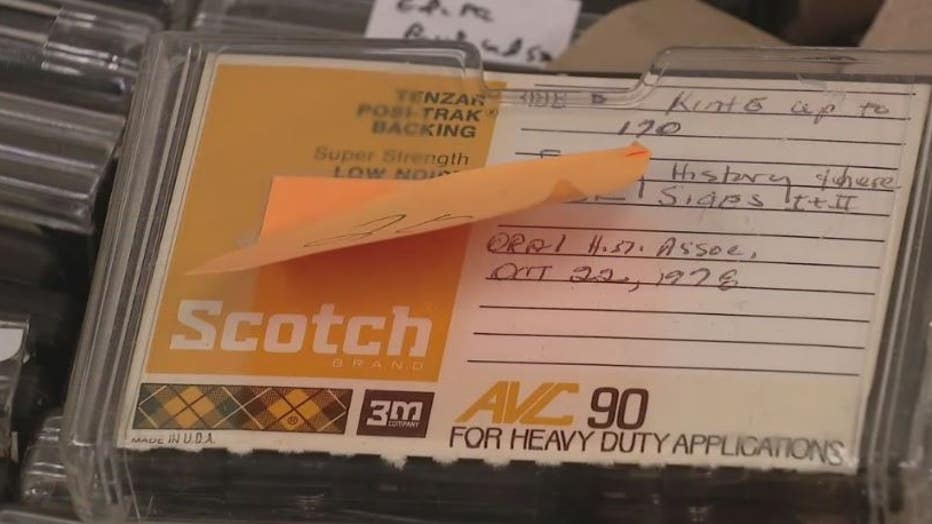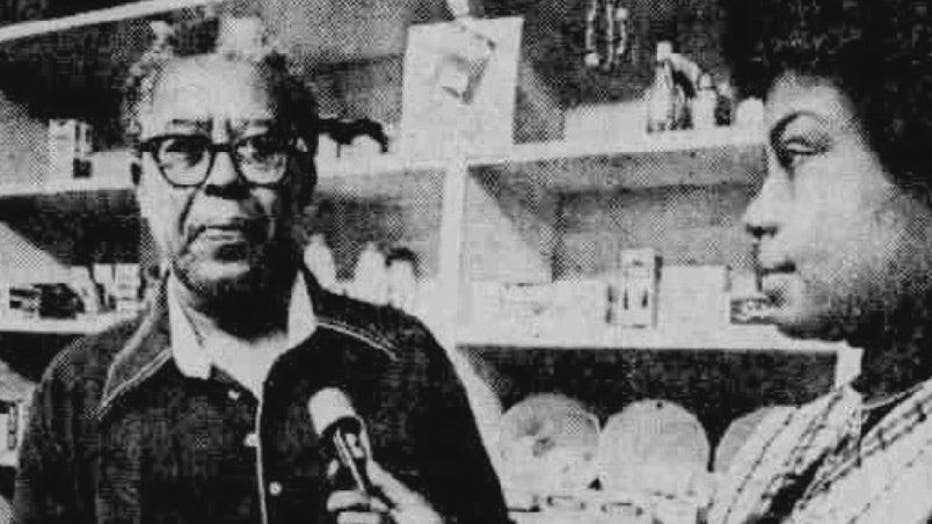Archival oral history recordings detail lives of Black Pontiac residents from early 20th century

Unearthed OU audio archives detail lives of Black Pontiac residents in early 20th century
There was a time when the passing of knowledge, memory and experience was all done by word of mouth and oral history is no less important in modern times. About 39 interviews on 70 to 80 tapes could be critical for genealogical and research purposes.
ROCHESTER HILLS, Mich. (FOX 2) - The archive department at Oakland University is opening a unique window to the past in honor of Black History Month.
Recordings have been saved, offering first-hand accounts from African-American families detailing the challenges they faced in the city of Pontiac in the early 20th century.
There was a time when the passing of knowledge, memory, and experience was all done by word of mouth and oral history is no less important in modern times.
About 39 interviews on 70 to 80 tapes, unearthed in the archives at OU, could be critical for genealogical and research purposes.
"There were mostly house parties and then we had dancing, and small halls we rented for dancing," said a resident named Tom Holland in a recording.
Holland was recorded in the 1970s; a Black resident of Pontiac, he’s one of several people from the city, interviewed by Dr. Johnetta Cross Brazzell. She was working at Oakland University at the time to record the stories of everyday Black residents. All of them are since deceased.
"Oral histories like this are important because they record and document the experiences of ordinary people that usually do not get heard at all or don't get remembered," said Dominique Daniel, archives coordinator, Oakland University.

The recordings are now housed in the Oakland University Kresge Library archives.
"The ordinary folks living in Pontiac, especially people who arrived there in the 1910s and 1920s, these were Black people coming from the south and very often their experiences have been ignored," Daniel said. "It seemed invaluable to have their voices recorded and get first-hand accounts."
The interviews reveal memories about World War II, segregation, education, housing, employment, religion, entertainment, and community building, from a bygone era. Oakland University's hope is to connect with their living relatives.

"First of all they can help us better understand those people's lives maybe they have photos and documents they can share with us and make them publicly available," Daniel said.
"It’s not simple to find the relatives of people on an audiotape 45 years ago," said Justin Lamb, a student researcher. "We were able to make podcast episodes where we interview city councilmen played them some of the clips and compared and contrasted different aspects of the community."
And next week Thursday Feb.24 at 1 p.m., Dr. Johnetta Cross Brazzell who conducted the interviews in the 1970s, will discuss the Pontiac oral history project and the aspects of Black history and activism that compelled her to do this.
Online links: Register in person HERE. Register for the Zoom HERE.

Call Oakland University to connect with their archivist if your family member was interviewed or email Dominique Daniel: daniel@oakland.edu
The Names Of All Interviewees:
- Rebecca Barksdale
- William Aaron Garling
- Wilford Gordon
- Thomas Holland
- Harry Ricks
- Adele Walker
- Mary Belle Scott
- Nellie R. Lena Morton Ryder
- Mary Gordon
- Willie Dean
- Anne Walker
- Lillian Richardson
- Margaret Dooley
- Elizabeth Hunt
- Cassius Roberts Sr.
- Samuel Morgan
- Oliver Tademy
- Edith Cross
- Ima Harris
- Lois Wilson
More info:
There is an interesting talk coming up on Feb. 24 regarding the oral histories of citizens of Pontiac from the 1970s that are housed in the Oakland University Kresge Library. All the participants are deceased now. Voices Heard: Dr. Johnetta Cross Brazzell and the Pontiac Oral History Project.
February 24th Noon for lunch at Kresge Library; Program begins at 1 PM online via Zoom
Dr. Johnetta Cross Brazzell speaks about her 1970s oral history project with Black residents in Pontiac. She will be joined in conversation by Omar Brown-el, Senior Director of Multicultural Initiatives at Oakland University. Dr. Cross Brazzell's recordings are a part of OU’s Pontiac Oral History Project, housed in Oakland's Kresge Library archive.
Dr. Cross Brazzell asked interviewees about their arrival in Pontiac, from the 1920's to WWII, and their experiences through the 1950s. She asked questions about education, housing, employment, religion, entertainment, and more, and her narrators had much to say about segregation and community building in that era.
Dr. Brazzell will also speak to the currents in African American history and activism that brought her to that project. Please note that there are two attendance options for this event: in-person and virtually via Zoom.
Those who opt to attend in-person, we will have a light lunch available along with selections from the library's special collections on Pontiac history. Those attending via Zoom, a link to join the webinar will be sent a few days prior to the event to all who register.


